Next-IO™ Anti-ARG1 Therapeutic Monoclonal Antibody Program
About This Program
This program aims to develop anti-ARG1 therapeutic monoclonal antibodies in the immuno-oncology field.
Tumor-associated macrophages (TAMs) are known for their ability to modulate cancer-associated activities. There are two types of macrophages, M1 and M2 types, and TAMs have been shown to express an M2-like phenotype during tumor progression. TAM contains cells that display immunosuppressive and tumorigenic function and able to express the enzyme arginase 1 (Arg1).
Arginase is considered to be a key metabolic enzyme in urea synthesis. Studies have shown that arginase affects a range of downstream metabolic pathways. Recent studies have confirmed that ARG1-induced expression in TAM is involved in the anti-inflammatory reaction, tumor immunity, tumor proliferation, metastasis, and other immunosuppression related diseases. From these findings, ARG1 may be a potential target to be researched in cancer treatments.
ARG1
-
The expression of Arg1 can be induced by interleukin-4 and lactic acid, both of which can be produced by tumor cells.
-
Arg1 metabolizes L-arginine to urea and L-ornithine. Downstream conversion of L-ornithine produces L-proline and polyamine. This pathway is essential for cell proliferation and collagen synthesis.
-
Arg1+ macrophages promote wound healing and tissue fibrosis and inhibit T cell activation by local-consumption of L-arginine 11.
-
Although TAM targeting agents are extensively studied in cancer treatments, there are no Arg1 inhibitors clinically approved by the agencies.
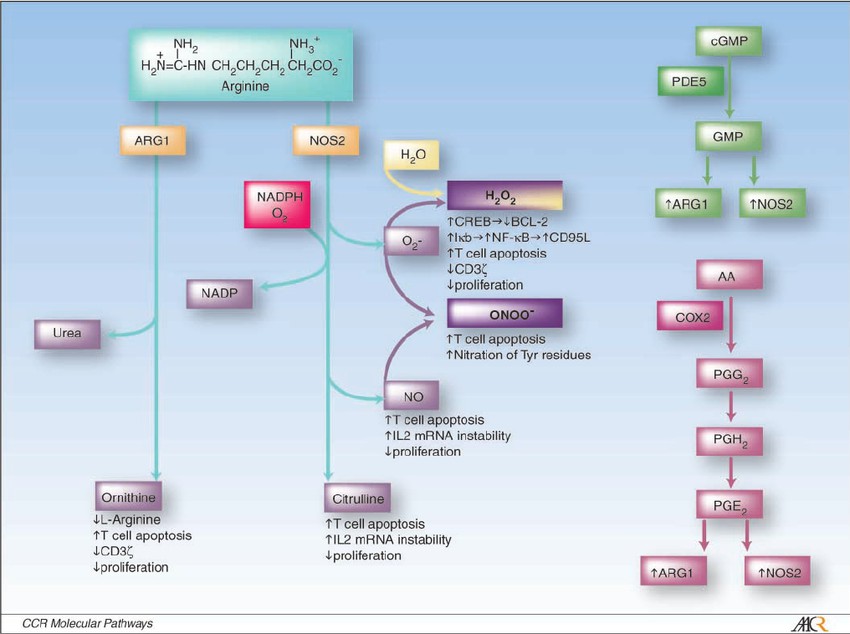 Fig.1 Schema of ARG1 and NOS2 metabolic pathways.3
Fig.1 Schema of ARG1 and NOS2 metabolic pathways.3
ARG1 in Cancer Studies
Here are some published data about ARG1 working as a potential target for cancer immunotherapy.
-
Arginase 1 is abundant in multiple types of cancer.
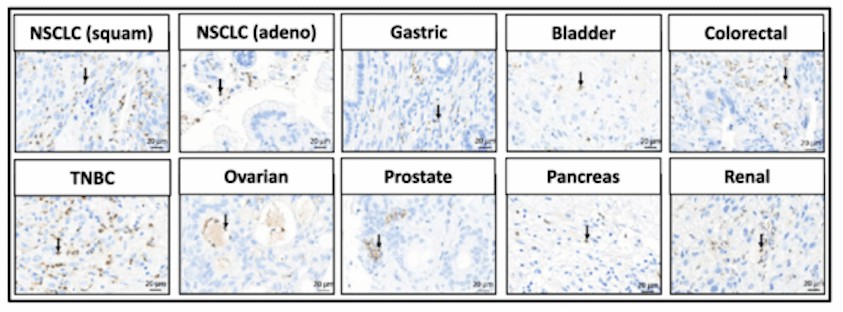 Fig.2 Arginase 1 is abundant in multiple types of cancer.2
Fig.2 Arginase 1 is abundant in multiple types of cancer.2
-
Arg1 inhibition in combination with aPD-1 therapy decreases tumor area and extends patients’ survival rate.
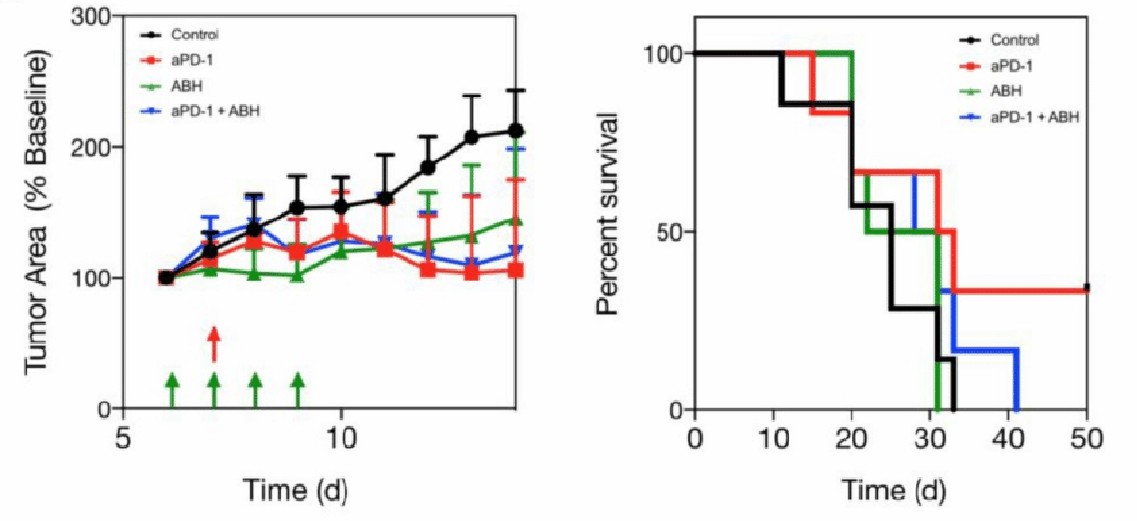 Fig.3 Arg1 inhibition in combination with aPD-1 therapy.1
Fig.3 Arg1 inhibition in combination with aPD-1 therapy.1
-
Arginase inhibition (CB-1158) reduces tumor growth in vivo.
Clinical Trials under Progress
Program Planning and Management
We have extensive knowledge of end-to-end program development. For each program, we are committed to delivering the finalized program to our clients within 1.5 years before entering the IND stage.
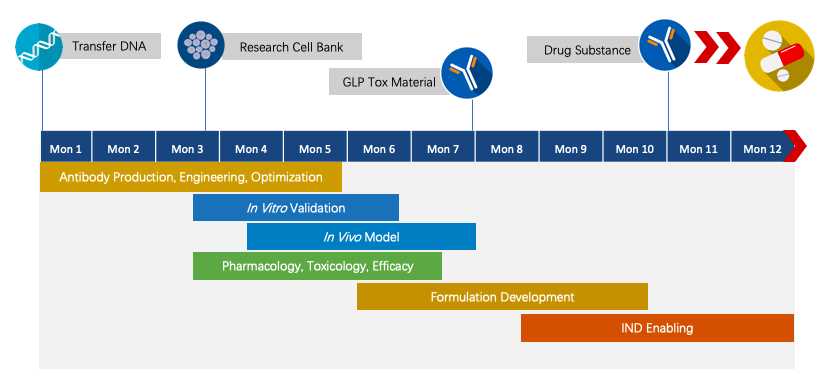 Fig.5 Project pipeline management of therapeutic monoclonal antibody.
Fig.5 Project pipeline management of therapeutic monoclonal antibody.
Cooperation
Creative Biolabs is looking for potential partners (include but not limit to major pharma or biotech firms) to develop anti-ARG1 therapeutic monoclonal antibody program together. Our scientists are dedicated to bringing years of valuable experience to our partner and achieve a meaningful partnership together. For any partners interest in our Next-IO™ programs, Creative Biolabs welcomes collaboration.
Here are two ways for your choice, and please contact us for more details.
1) Collaborate with us and co-develop the programs from the discovery phase to IND enabling. Costs will be shared.
2) Become a licensed candidate for our programs.
With our quality control protocol and knowledge of global regulatory requirements, we can help our partners advance their programs with more chance to succeed. Look forward to working with you in the near future.
References
-
Sean P.,et al. Arg1 expression defines immunosuppressive subsets of tumor-associated macrophages [J]. Theranostics. 2018; 8(21): 5842-5854.
-
Steggerda S M, et al. Inhibition of arginase by CB-1158 blocks myeloid cell-mediated immune suppression in the tumor microenvironment[J]. Journal for ImmunoTherapy of Cancer. 2017, 5(1): 101.
-
Talmadge, JE. Pathways mediating the expansion and immunosuppressive activity of myeloid-derived suppressor cells and their relevance to cancer therapy. Clinical Cancer Research. 2007, 13(18): 5243-8.
For Research Use Only | Not For Clinical Use


 Fig.1 Schema of ARG1 and NOS2 metabolic pathways.3
Fig.1 Schema of ARG1 and NOS2 metabolic pathways.3
 Fig.2 Arginase 1 is abundant in multiple types of cancer.2
Fig.2 Arginase 1 is abundant in multiple types of cancer.2
 Fig.3 Arg1 inhibition in combination with aPD-1 therapy.1
Fig.3 Arg1 inhibition in combination with aPD-1 therapy.1
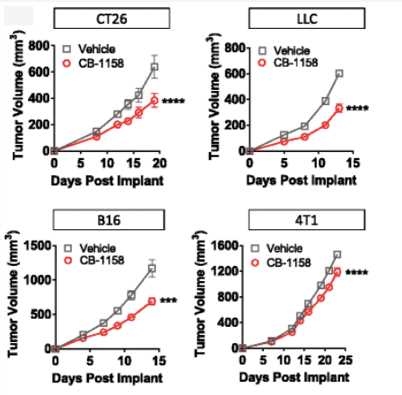 Fig.4 Arginase inhibition reduces tumor growth in vivo.2
Fig.4 Arginase inhibition reduces tumor growth in vivo.2
 Fig.5 Project pipeline management of therapeutic monoclonal antibody.
Fig.5 Project pipeline management of therapeutic monoclonal antibody.
 Download our brochure
Download our brochure